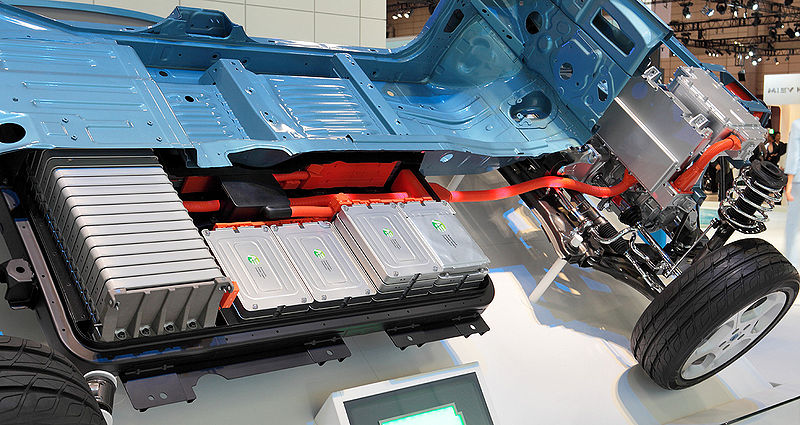We will answer the most important question about electric cars” “Are electric cars bad for your health?” Busting the Myths” and bust all the myths about the effects of electric cars on human health and the environment so that you can easily decide to switch to electric cars.

Navigating the Health and Safety Landscape of Electric Cars
The rise of electric vehicles (EVs) has been a particularly fascinating development, challenging long-held assumptions and paving the way for a more sustainable future. However, one persistent concern that often arises is the question of whether electric cars are truly safe for our health.
Addressing the Concerns
For many consumers, the transition to electric vehicles comes with a lingering sense of unease. Questions about battery safety, electromagnetic radiation, and the potential health impacts of this new technology are understandable. After all, our health and well-being are paramount when it comes to the vehicles we entrust with our daily commutes and long-distance journeys.
It’s important to acknowledge that these concerns are not entirely unfounded. Any new technology, including electric vehicles, deserves thorough scrutiny to ensure its safety and reliability. However, as we’ll explore in this article, the evidence overwhelmingly suggests that electric cars are not only safe for health but may even offer significant health benefits compared to their traditional, gasoline-powered counterparts.
Busting the Myths: The Truth about EV Safety
Battery Safety: Addressing the Risks

One of the primary concerns surrounding electric vehicles is the safety of their lithium-ion battery packs. There have been isolated incidents of battery fires, leading some to question the inherent risks of these energy storage systems. However, it’s crucial to understand that the battery technology used in modern EVs has undergone extensive testing and development to ensure the highest levels of safety.
Automakers and battery manufacturers have implemented robust safety features and stringent quality control measures to mitigate the risk of battery-related incidents. These include thermal management systems, advanced cell chemistry, and sophisticated battery management software that continuously monitors and regulates the battery’s performance. Additionally, the enclosures housing the battery packs are designed to withstand significant impact and prevent the risk of thermal runaway or explosion, even in the event of a collision.
Electromagnetic Fields: Separating Fact from Fiction
Another common concern raised about electric vehicles is the potential exposure to electromagnetic fields (EMFs) generated by the electric motor and charging systems. While it’s true that EVs do emit some level of EMFs, the scientific consensus is that the exposure levels are well within safe limits and pose no significant health risks to drivers or passengers.
The electromagnetic fields produced by electric vehicles are comparable to those encountered in everyday household appliances, such as microwaves, televisions, and computers. Extensive research has been conducted, and regulatory bodies around the world have established safety guidelines to ensure that EMF exposure from EVs falls well below the thresholds considered harmful to human health. Furthermore, the electric and magnetic field levels inside an EV are typically much lower than the levels experienced by technicians working on the vehicle or by those standing near the charging infrastructure.
Environmental Considerations: Cradle-to-Grave Impact
When discussing the health and safety implications of electric vehicles, it’s also important to consider the broader environmental impact throughout the vehicle’s life cycle. While the manufacturing process of EVs may initially result in higher emissions compared to traditional vehicles, the long-term environmental benefits of zero-tailpipe emissions and the increasing use of renewable energy sources in electricity generation make electric cars a significantly cleaner and healthier transportation option.
Studies have shown that the overall environmental impact and carbon footprint of electric vehicles, from production to end-of-life recycling, are substantially lower than those of conventional gasoline-powered cars. This translates to tangible health benefits, as the reduction in air pollution and greenhouse gas emissions contributes to improved air quality, which is directly linked to better respiratory health and a lower risk of respiratory illnesses, such as asthma and lung cancer.
Embracing the Health Benefits of Electric Mobility
Cleaner Air, Healthier Communities

One of the most significant health advantages of electric vehicles is their ability to significantly reduce air pollution in the communities they serve. Unlike traditional internal combustion engines, EVs produce zero direct tailpipe emissions, eliminating the release of harmful pollutants such as particulate matter, nitrogen oxides, and carbon monoxide. This cleaner air quality has a direct and positive impact on the health of residents, particularly in urban areas where vehicle emissions are a major contributor to respiratory problems and other respiratory illnesses.
The reduction in air pollution brought about by the widespread adoption of electric vehicles can have far-reaching benefits for public health. Studies have shown that decreased exposure to vehicle emissions can lead to a lower incidence of asthma, heart disease, and lung cancer, as well as improved overall respiratory function and cardiovascular health. By embracing electric mobility, we can create healthier, more livable communities that prioritize the well-being of their citizens.
Noise Reduction and Mental Well-Being
Another often overlooked health benefit of electric vehicles is their remarkably quiet operation. The near-silent propulsion of EVs, especially in urban environments, can significantly reduce noise pollution, which has been linked to a variety of health problems, including sleep disturbances, stress, and cardiovascular issues.
The decreased noise levels associated with electric vehicles can have a positive impact on mental health and overall well-being. By providing a more serene driving experience and reducing the constant hum of internal combustion engines, EVs can contribute to a calmer, more relaxed environment, which can lead to reduced stress, improved concentration, and better sleep quality for both drivers and pedestrians. This quiet revolution in transportation can have a profound influence on the quality of life in our communities.
Promoting Active Lifestyles
In addition to the direct health benefits of reduced air and noise pollution, electric vehicles can also indirectly contribute to healthier lifestyles. By offering a more environmentally friendly and cost-effective transportation option, EVs can encourage more people to consider alternative modes of mobility, such as walking, cycling, or using public transit. This shift towards active transportation can have a significant impact on physical fitness, cardiovascular health, and overall well-being.
Furthermore, the ease of charging electric vehicles at home or work can facilitate the integration of EVs into daily routines, reducing the need for lengthy commutes and encouraging more active forms of transportation for shorter trips. This increased physical activity can lead to a range of health benefits, including lower risks of obesity, type 2 diabetes, and certain types of cancer, as well as improved mental health and cognitive function.
Navigating the Future of Safe and Healthy Electric Mobility
Regulatory Oversight and Continuous Improvement
As the electric vehicle industry continues to evolve and grow, the safety and health implications of this technology remain under the careful scrutiny of regulatory bodies and industry stakeholders. Automakers, battery manufacturers, and policymakers work collaboratively to ensure that electric vehicles meet the highest safety standards, undergo rigorous testing, and adhere to established guidelines to protect the well-being of drivers, passengers, and the public.
This commitment to safety and health is an ongoing process, with continuous improvements in battery technology, electromagnetic field management, and the overall design and engineering of electric vehicles. As the industry matures, we can expect to see even greater advancements in the health and safety aspects of EVs, further solidifying their position as the transportation solution of the future.
Embracing the Transition to Electric Mobility
The transition to electric vehicles is not just about the cars themselves – it’s about creating a healthier, more sustainable future for all. By embracing this technological revolution, we have the opportunity to positively impact our personal health, the health of our communities, and the health of our planet. The evidence is clear: electric cars are not only safe, but they also offer significant health benefits that far outweigh any perceived risks.
FAQs:
Are electric vehicle batteries safe?
Yes, electric vehicle batteries are designed with robust safety features and undergo extensive testing to prevent risks like thermal runaway or explosion. Automakers and battery manufacturers have implemented advanced safety measures to ensure the battery packs in EVs are safe for drivers, passengers, and the general public.
Do electric vehicles emit harmful electromagnetic fields (EMFs)?
The electromagnetic fields produced by electric vehicles are generally within safe limits and comparable to those found in everyday household appliances. Regulatory bodies have established guidelines to ensure EMF exposure from EVs poses no significant health risks to drivers or passengers.
What are the environmental and health benefits of electric vehicles?
Electric vehicles have a significantly lower carbon footprint and produce zero direct tailpipe emissions, leading to improved air quality and reduced exposure to harmful pollutants. This translates to tangible health benefits, including lower incidence of respiratory illnesses, cardiovascular problems, and other environmentally-related health issues.
How do electric vehicles contribute to healthier lifestyles?
Electric vehicles can encourage more active forms of transportation, such as walking, cycling, or using public transit, by providing a cost-effective and environmentally friendly mobility option. This increased physical activity can lead to a range of health benefits, including improved cardiovascular health, weight management, and mental well-being.
Are there ongoing efforts to ensure the continued safety and health of electric vehicles?
Yes, the electric vehicle industry and regulatory bodies work collaboratively to maintain the highest safety standards, undergo rigorous testing, and implement continuous improvements in battery technology, electromagnetic field management, and overall vehicle design. This commitment to safety and health is an ongoing process as the industry evolves.
How can I make an informed decision about transitioning to an electric vehicle?
When considering the switch to an electric vehicle, it’s important to research the facts, dispel any myths, and focus on the tangible health and environmental benefits. Consult reliable sources, engage with the EV community, and weigh the advantages against your specific transportation needs to make an informed decision that aligns with your health and sustainability goals.
What role do electric vehicles play in creating healthier communities?
By reducing air and noise pollution, electric vehicles can contribute to cleaner, more livable communities with improved public health outcomes. The decreased exposure to vehicle emissions and the quieter driving experience can lead to lower incidence of respiratory illnesses, cardiovascular problems, and mental health issues, ultimately enhancing the overall well-being of residents.
References:

2 thoughts on ““Are electric cars bad for your health?” Busting the Myths”